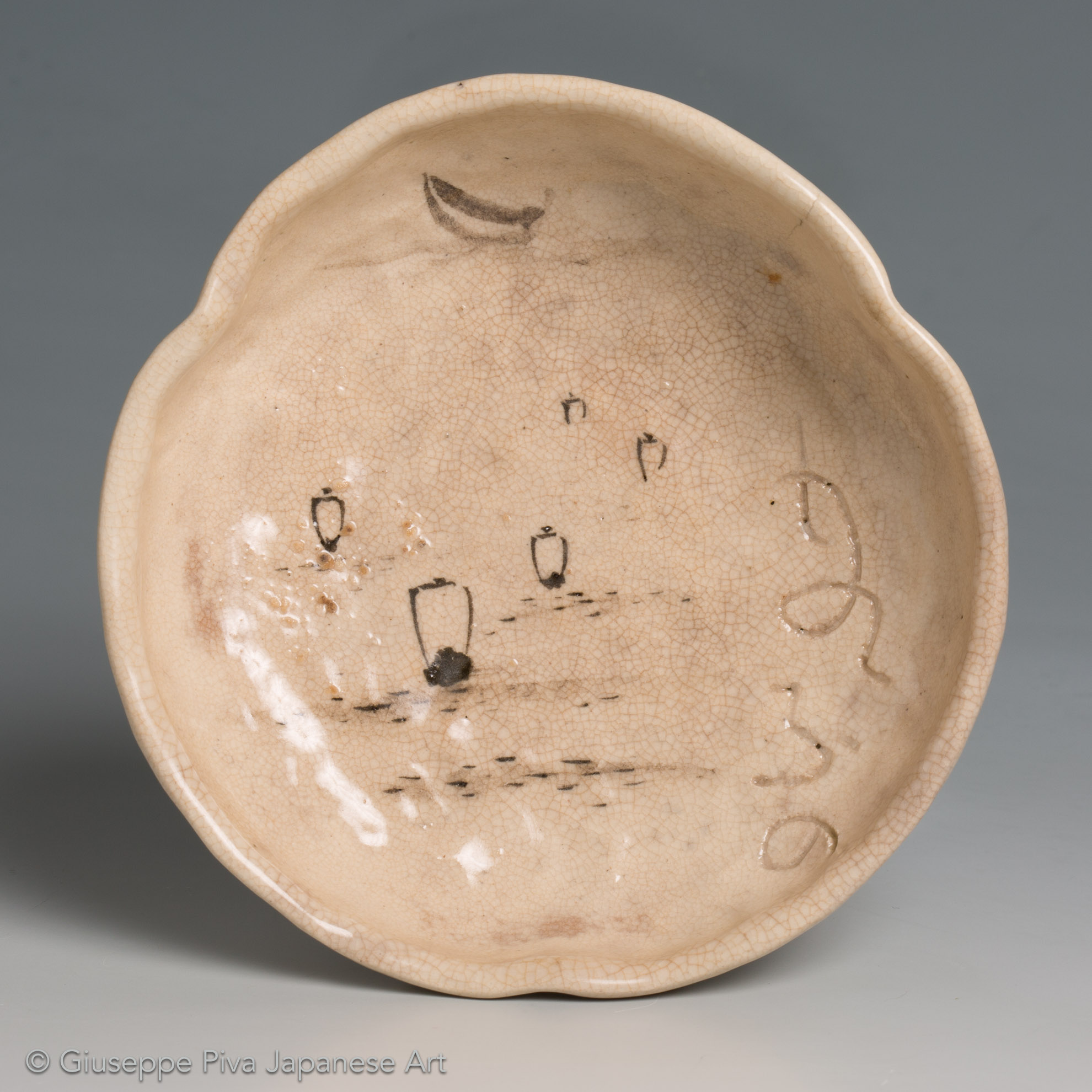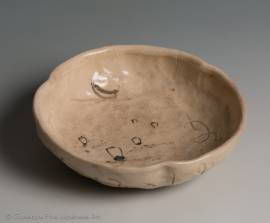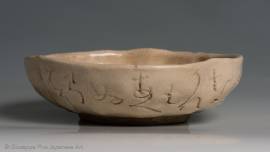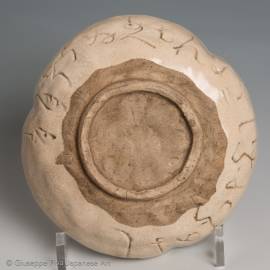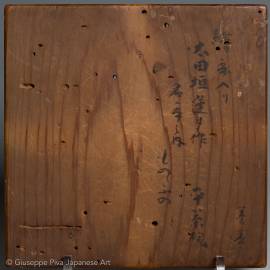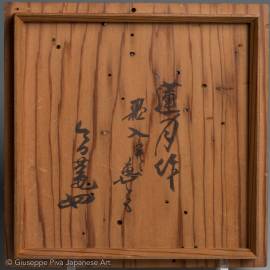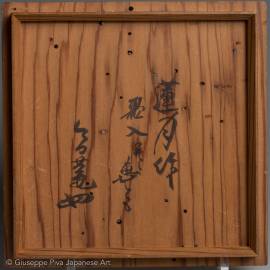Shallow bowl
Otagaki Rengestu (1791- 1875)
Shallow bowl
Ceramic; diameter: cm 13.5
Signed Rengetsu at the end of the poem
Tomobako signed by En’nousai (13th Urasenke master)
The poem and the picture of this delicate bowl refer to an episode from the Genpei War:
Samurai,
at the shore of Yashima
floating in the evening tide
what cannot be swept away
the crescent moon
もののふの
やしまのうらの
夕しほに
なかれもあへぬ
弓はりの月
As recorder in the Heike Monogatari, the army led by the general Minamoto Yoshitsune attacked in 1185 the Heike soldiers camped on the beach of Yashima forcing them to flee on their boats, as illustrated in many paintings showing the general watching this scene on horseback.
The term “yumihari” used to describe the crescent moon shaped as a bow, is another reference to an episode from the same poem, called Yuminagashi, when Yoshitsune risked his life to retrieve his bow; when questioned, he explained he could not allow his enemies to find out he was using such a light bow, as they would call him weak.
Poet, calligrapher, painter and potter, Otagaki Rengetsu was a Japanese Buddhist nun and one of the few prominent Japanese female artists. Daughter of unknown parents, she was adopted by a samurai family and spent her childhood at Kameoka Castle as a courtesan until the age of 16; during her stay, Otagaki excelled in waka poetry, a Japanese classical verse particularly popular among women during the Edo period. After an unfortunate stage of her life in which both her husbands and her three infant children died, she decided to change life radically and during the night in which her last husband passed away, she cut off her hair and made clear that she would never marry again: at the age of 33 she became a nun of the Pure Land sect of Buddhism, taking the name “Rengetsu”, meaning Lotus Moon.
Despite the hardness of her life, she created a series of gently, lyrical and highly sophisticated paintings, embellished with refined verses inscribed in a fine calligraphy. In her poetry, Rengestu celebrates what she experienced in her daily life, combining the spiritual with the tangible but rarely using direct Buddhist references.
Sku: alt1220
Info works
Copyright © 2016 - giuseppe piva - VAT: 05104180962


